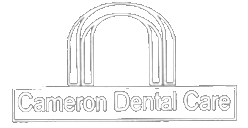Scope of Practice
Downplayed by the Dental Board of Australia (DBA) as a standard consultation, the proposed changes to the Scope of Practice Registration Standard are set to fundamentally change the nature of the dental profession and the provision of dental services in Australia.
The DBA is proposing a set of changes that are transparently aimed at reducing the cost of dentistry by allowing independent practice by hygienists, therapists, and oral health therapists. While the intent is clear, the Dental Board have not considered the removal of the structured professional relationships as a clinical governence tool in the broader context of minimum competencies for dental practitioners and legal limits to practice.
The changes
1. Removal of reference to programs to extend scope
2. Clarify expectations around education, training and competence
3. Remove the requirements of ‘independent practitioner’
4. Remove the requirement of a structured professional relationship
Click for full details of the Dental Board consultation paper
The impact
Should the Dental Board recommend these changes to the health ministers and the decision is ratified, here’s what we’re likely to see:
A change in the dynamic of the dental team. Right now, dentists and other dental practitioners work harmoniously under structured professional relationships, establishing the dentist as the leader of the dental team who is suitably trained and qualified to treat within full scope, and support other staff as required.
The removal of the safety net for allied dental practitioners. The comfort and surety of support currently enjoyed within a structured professional relationship with a dentist will be removed, meaning a hygienist, therapist and oral health therapist working outside of a structured professional relationship will be fully responsible for any adverse consequences arising from treatment.
There’s a risk to patients. Treating independently carries significant risk because you don’t know what you don’t know. This could lead to some practitioners being under or over-confident, and treating or diagnosing in a way that has serious consequences for a patient.
